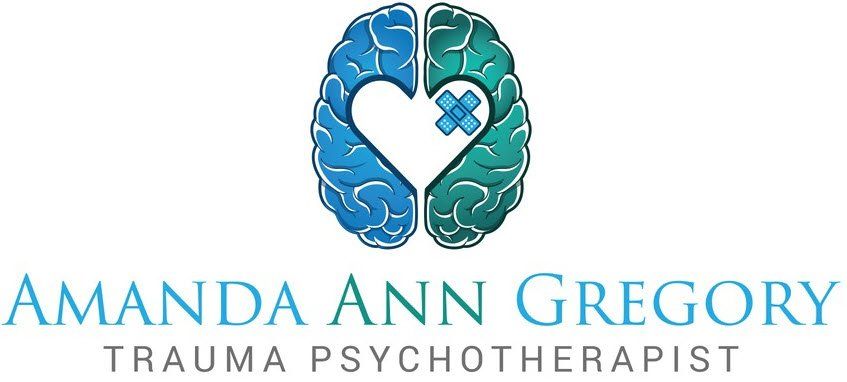Neurofeedback: A Bottom-Up Approach to Trauma Treatment
By: Leanne Hershkowitz, LPC
What is Neurofeedback?
Neurofeedback, in many ways, is like yoga for the brain – it’s a practice where you learn to change your mindset, emotions, brain, etc. In Yoga, you don’t get into postures so you can stay there all day, you get into postures for what you can learn from them and take with you the rest of your day. The same idea applies to neurofeedback.
Neurofeedback uses learning principals and EEG biofeedback to help you change how the neurons in your brain fire, communicate with each other and much more – right in the office. Often you want to make less slow wave, less fast wave and more calm content waves. You do this through the feedback provided to you in a computer game – with your brain as the controller. As you adjust your brain waves based on the feedback you’re getting, your brain becomes more regulated and targeted symptoms can reduce or go away completely.
A lot of the process of learning is unconscious but by setting the intention of wanting the game to work and trying to relax while still staying focused, your brain will try different things until it gets the reward and basically take care of the deep learning. After your session, much like after your Yoga class, you don’t try to go around all day imagining the game but rather your brain learns a new way of being that you just exist in – with enough practice.
This is why we call neurofeedback a “bottom-up” process. Neurofeedback engages the body (which includes the brain) to change the whole system. The brain is at the root of almost everything that goes on in the brain, body and mind. So rather than using our thoughts (ie: CBT Therapy) or body (ie: Yoga, Deep Breathing, etc.) to try and change the brain – we go directly to the source and ask it to change. Those other aspects are important too but they work a lot better when the source is cooperating rather than fighting the healing you’re trying to provide.
Neurofeedback is often the catalyst for all other therapeutic work to finally make an impact or take hold.
Are there different types of Neurofeedback?
YES! Amplitude, z-score, multivariate coherence, etc. Generally, research shows that they all work and often have equal or better outcomes then therapy or medication alone and results last longer at follow-up than any other treatment. But they don’t all work for all people and/or issues. Different types work on different aspects of brain EEG functioning and also operate on different theoretical paradigms. And depending on what you are hoping to improve, you may respond better to certain types and may need to use more than 1 type to make the progress you want.
What Kinds of Symptoms can Neurofeedback Help with?
- Regulation of Emotions and Moods
- Clusters of symptoms typically associated with depression, anxiety, ADHD, etc.
- Sleep/Wake cycles
- Cognitive Processing
- Executive Functioning
- Sensory Processing
- Inhibition of Motor Responses/Impulse Control
- Memory
Can Neurofeedback help with Trauma Symptoms?
In my opinion as a trauma therapy specialist - it is an integral component on any survivors' journey to find, create and build healing. But it’s important to have a provider who understands and is well trained and experienced in using neurofeedback to help survivors. Nervous systems of trauma survivors can be tricky to work with and require specialized training and experience both with neurofeedback and counseling. The goal for this kind of work is to unravel the impacts of trauma on the nervous system and teach it to be more regulated while also being more appropriately flexible. To learn more about this work, read “Calming the Fear Driven Brain – Neurofeedback and Developmental Trauma” by Sebern Fisher, a pioneer in this field with over 30 years of experience.
How Do I Find a Trained Provider?
The simple answer is BCIA.org – this is a voluntary governing body for all neurofeedback providers that certifies their education, training and mentoring time. The more complicated answer is that you want to look for a provider who has a deep understanding of the aspects of your life you’d like to improve. If you are someone with a trauma history, you want to be working with someone with clinical training as well as neurofeedback for trauma. Don’t be afraid to ask them questions about their theoretical orientation, how they see the impacts of trauma on the brain & nervous system and how they believe neurofeedback can help improve the symptoms you’re experiencing.
Leanne Hershkowitz, M.A./Ed.S, LPC, BCN is board certified in neurofeedback and a Licensed Professional Counselor. Leanne specializes in the integration of counseling and clinical neurofeedback for trauma including complex, developmental and adoption as well as anxiety, depression, ADD/ADHD and ASD. Leanne’s practice integrates amplitude/arousal-based training with QEEG & 4 channel multivariate coherence training. She teaches courses ranging from home use neurofeedback to body image and enjoys mentoring new neurofeedback professionals.
Sign up for my monthly newsletter and receive the free e-book 25 Anxiety and Trauma Coping Hacks. Sign up HERE
References:
Fisher, S. F. (2014). Neurofeedback in the treatment of developmental trauma: Calming the fear-driven brain. W.W Norton & Company.
Hershkowitz, L. (n.d.). Find Hope Counseling. Finding Hope Counseling. Retrieved August 25, 2022, from http://www.findinghopeadolescentcounseling.com/
International Society for Neuroregulation & Research. ISNR. (2022, April 21). Retrieved August 25, 2022, from http://www.ISNR.org/
Potter, R. (n.d.). Board Certification International Alliance. Home. Retrieved August 25, 2022, from http://www.bcia.org/
Vala, L. (n.d.). EEG Learn. Retrieved August 25, 2022, from http://www.eeglearn.com/

All Rights Reserved | Amanda Ann Gregory, LCPC
Design & Consultation by Teresa Lauer, LMHC, GrowYourTherapyPractice.com *

